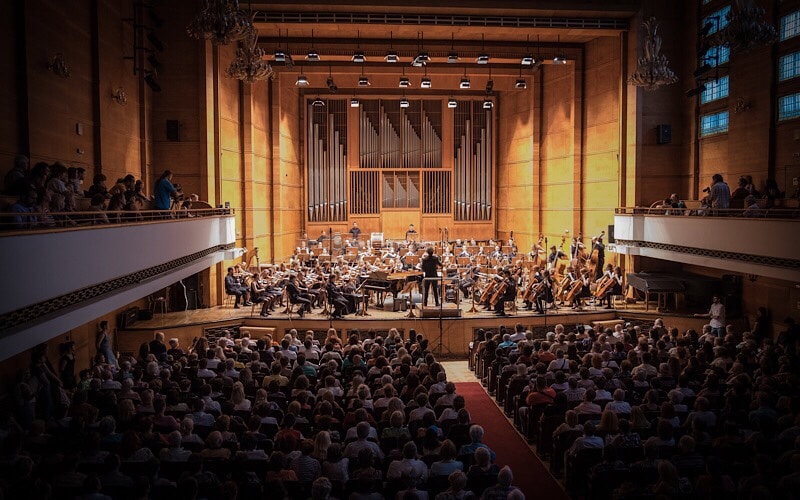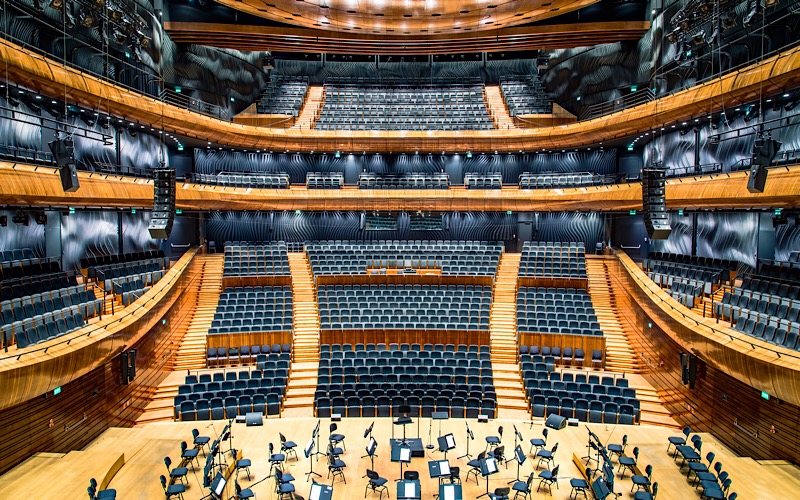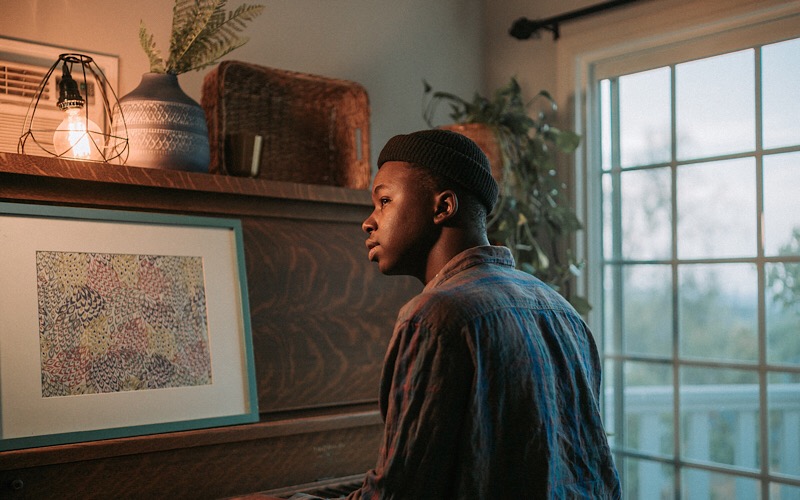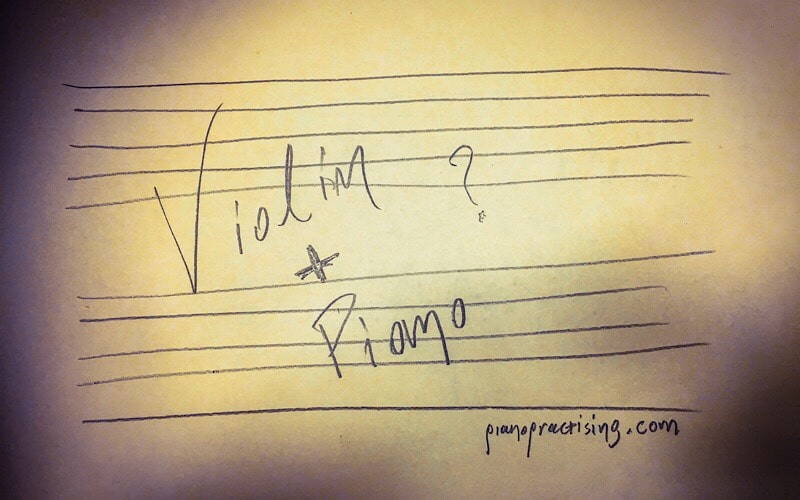“If you always give, you will always have.” Chinese Proverb
A few years back my friend AJ experienced an incident so peculiar, that made me think deeply about the things that affect my priorities as a musician, and the space those things should occupy (if any), in my everyday musical and personal life.
As the song “Que Será, Será” implies, the future consequences from our or others’ actions are beyond our control. And we shouldn’t really think about it.
Now, you might ask how this story relates to practising the piano in the first place. Well, a notion that we often forget to appreciate and even fail to communicate to our students, is the importance of optimally prioritising the things we do in our everyday lives; it makes little or no sense, if we perfectly know how to practise the piano, but fail to actually sit and practise in the first place, due to bad time-management. Often, that poor time-management, derives directly from actions that we take upon other peoples’ requests. Those requests may be perfectly justified or they can be unreasonable. However, it doesn’t matter, because those requests do manage to have the same result altogether: Consuming our valuable time.
And thus, I decided to honour my friend’s misadventures by telling you his story.
❦
So, the story goes that AJ was innocently “lured” by the mother of one of his violin students to write a violin and piano arrangement to the tune of “Que Será, Será” for her and her son to play. She was an amateur pianist and knew her way around the piano, but the arrangement had to be of intermediate level for both her and her son to be able to play adequately.
AJ was caught off-guard after a casual conversation over coffee by the family’s indoor swimming pool, after their Sunday’s weekly lesson. Somehow, AJ felt obliged to satisfy the mother’s wish to write this arrangement. Though, he didn’t know why he felt so obliged to do it. Was it the high rates he was demanding for his lessons? Did the swimming pool and the surroundings play a role in his decision? Or, was it a simple inability to say no to a rich, powerful, and hospitable employer? He wouldn’t know at the time, but, rest assured, he understood later.
Only after hopping on his moped on the way back home everything begun to sink in. The issues that surfaced after he said “yes, I’ll do it,” were endless. Now, he had to follow an unexpected turn of events and write this arrangement!
He not only had to actually construct an arrangement from scratch, and everything such an endeavour entailed, but he also had to include in that arrangement the piano; even though he had done piano as a second study at college, this instrument and its world of notation was far from being proficient to him. At the same time, he had to pay copyright fees in order work on a piece that didn’t belong to the public domain. And, as you would expect from reading this so far, he was too proud to ask the parent to pay the fees. Go figure.
Another problem was that he had to complete this task in a timely manner, because, as he confessed to me months later, “there was no point to say yes, and then deliver in a couple of years.”
In addition, he had to face the practicalities of diving into notation software for the first time in many years. He kind of knew his way around the Finale notation software, but he wasn’t certain that he could really tame this beast of a program, since the last time he really had to use it, was back in 2004, when he was notating the examples of his PhD thesis on Percy Grainger. And, of course, he wasn’t willing to give scribbles of a handwritten score to the family that was, basically, supporting him financially. He was doomed.
He parked his moped in the parking lot behind the O2 Centre in Finchley Road and took out a pack of Marlboro lights from his back pocket. He lit a cigarette up, took a deliberate drag and threw the remainder on the pavement. He decided that he had to act immediately. He eagerly looked up towards the O2’s cinema complex, but he knew that the film he was planning to watch on the big screen later on, was swiftly going out of the equation.
Immediately that night he started planning the “great escape” from his musical escapades; first, he had to secure that by penning his own musical arrangement he wasn’t infringing any copyrights. For that, he immediately emailed the copyright holders of the song and by Monday morning the company answered back, allowing him to do the arrangement. Then, he phoned his old friend Douglass from the Florida School Of Atonal Composition, to essentially reassure him that he could easily get back on track with the Finale. Douglass, a well-respected composer of micro-tonal music and an aficionado of Finale, had used the software for almost half a century now and he was the perfect guy to help my friend. Luckily, after hearing AJ’s distressed voice over the phone, Douglass, was also willing to edit the engraved outcome; it’s needless to say that this was a piece of cake for him.
But, for AJ, the problems were far from over; His unprecedented decision to accept this musical chore, forced him to having to overcome one of mankind’s greatest hurdles. A hurdle so steep, that even though it tantalised men from the beginning of time, it admittedly pushed some of them to achieve greatness: His Wife.
“What are you going to doooo?”
“Well, I….”
And that was the last sentence AJ would attempt to utter.
He was so scared of his wife, that he preferred to be enlisted to join the army, than hear that particular question from her again. He knew that every time his wife uttered this expression, there was going to be trouble ahead; he had to listen to a minimum of half-an hour lecture on why he was incapable of saying no to “stupid requests”, as his wife always used to say.
AJ was an honourable man. As with every human being, he had his share of weaknesses of course, but those were far below average in the scale of unimportant to serious ones. He was honest, compassionate, loved his wife wholeheartedly and never stole anything from anybody, except for that time that he snatched a Parker pen from the floor of one of the corridors in his gym. He just couldn’t leave it there. “It was so shiny and new”. He just took it in his hands and put in his pocket, naively thinking that nobody would really miss a pen. He always regretted that action.
He wasn’t going to let himself and the others down this time either; so he did what he had to do.
He spent the following week slaving it away, trying to heroically complete the arrangement, much to the disapproval of his wife. He stayed late at nights and phoned Douglass one too many times over the Atlantic, asking him to firstly forgive him and his infantile engraving demands, and then to help him out with engraving. On Wednesday he didn’t watch his favourite 50-minutes long episode of Poirot because, simply, there was no time. He also twice denied going out for drinks with his colleagues after work. He sacrificed so many things that week…
But then, on Saturday afternoon, as a most beautiful rose, his arrangement finally blossomed. Everything was up to scratch. He put the final touches on the score, typed his name as the arranger below the composer’s name, and then extracted and printed the parts. Ahhh, the feeling. He did it, and it felt so good.
The next afternoon, after his violin lesson and with a big smile on his face, AJ presented his student with the copy of the arrangement. His satisfaction that he completed the task was immense. Both mother and son warmly thanked him and he felt important, but also blessed.
The following week he came back again, and after the lesson he keenly asked the mother if they tried his arrangement. She said that they didn’t really have time that previous week, and promised him that they would have a look at it soon.
Immediately after hearing this, AJ got the gist of the whole scenario. He knew what happened. He felt betrayed. He felt that his efforts were futile, and as much as he liked to do the right thing, the others would not repay him with the same respect that he gave them. He felt that they should have tried his arrangement, or at least pretended that they did. But, no. Not even a rehearsed excuse to keep up the appearances. Nothing. It was like he just handed them a squished packet of crisps from the off-license next door.
“But it wasn’t like that. I gave my all. My work is important and deserves to be suitably respected,” AJ thought.
That was a big life-lesson for both AJ, and for me.
❦
AJ learned the hard way that life is indeed about putting us and our interests first and foremost. Who can deny it? If we can’t keep ourselves both mentally and physically healthy, how can we ever satisfy our own needs? Because if we don’t satisfy our own needs and yearnings, we won’t be able to satisfy the needs of our fellow human beings, which in essence, goes hand-in-hand with our own interests. A broken man cannot fully heal his fellow man; that’s undeniable. One has to be at his best, to be able to be of service.
So coming back to the piano, this instrument DEMANDS. Demands not only our mental capacities but equally our physical strength.
So, say no to the everyday trivialities.
If you had practising to do, say NO to your friend when they ask you to pick them up after work because their car was broken. Let them take the bus. Your piano comes first.
Say NO to proofreading your cousin’s nine thousand-word essay, and instead improve that long-overdue cadenza.
Your personal time is paramount.
I mean, we all owe to be compassionate and all, but at what cost? Would you, the reader, be willing to be compassionate and care for your friend’s sick father for ten days in the hospital? No? Why? Are you not human? What are you? A robot? No, of course not; you are human, but firstly, you have your own life to attend to. A life that you must nurture if you want it to blossom.
The Que Será, Será Syndrome
In contrast to the didactic “Que Será, Será” song, the syndrome of the Que Será, Será is a common condition that we all suffer from, unfortunately. Of course, some of us less and some more. This “syndrome”, indeed, has nothing to do with the popular song and its positive meaning, and only by sheer coincidence served as an example, metamorphosing its positive meaning to a darker one, in order to assist my friend’s tale.
This syndrome is about our journey to make others happy in the expense of our own wellbeing. Often, the people who benefited from our sacrifices won’t know the troubles we went through to satisfy their own earthly demands, but even if they did know, they darwinically couldn’t care less. They will eternally feel the words and the music of the song, no matter what, and it is they that they’re going to reap the benefits from the song’s positivity and hey-ho dynamics. But not us.
It’s an innate human predisposition to want to make the others happy. It’s also innate, I’m afraid, our eternal incapacity to fully appreciate others’ givingness. Remember the famous saying that no good deed goes unpunished? This couldn’t be closer to the truth for us musicians, and for good reason.
So, we must put our “musical wellbeing” first, because music, is the essence of our existence in this life, at the end of the day. And so, we, more often than not, get punished musically on our good deeds, because for us musicians, music punishment is where it hurts the most.
❦
It was Christmas time. The house was covered in fresh snow and an exquisite, festive aroma of smokey chimneys was filling the neighbourhood.
Mother and son found themselves by the fireplace, waltzing to the music of “Que Será, Será”.
“That’s how life should be!” the mother happily exclaimed. “Just dancing, being happy and not caring about anything!”
“Yes mom, you’re right!” the boy replied.
“Whatever happened to that arrangement your teacher wrote for us a few months ago? We never came around to play it.”
“Oh, yeah. Um… I don’t really know mom. I think I’ve lost it.”
===========
This is a work of fiction. Names, characters, events and incidents are fictitious. The parking lot behind the O2 centre and cinema complex in Finchley Road, North London are real places, however, the events described there are fictitious. Any resemblance to actual persons, living or dead, or actual events and incidents is coincidental. By reading this you accept our site’s Terms Of Use and Disclaimers.
©November 1st 2018, PianoPractising.com






